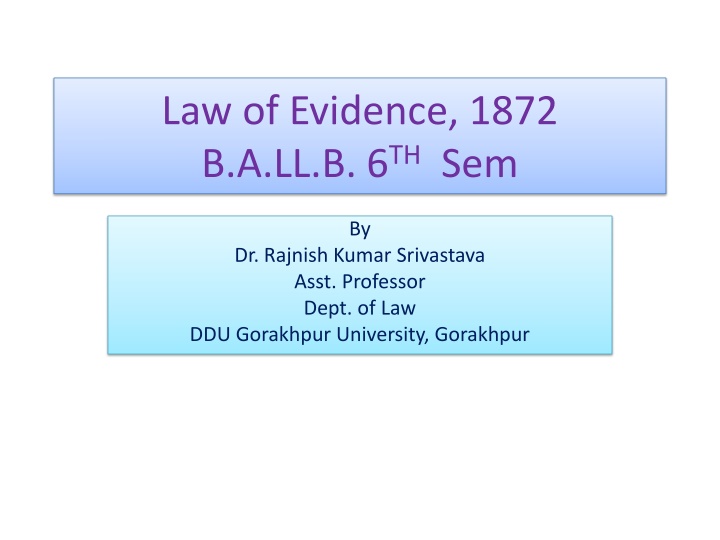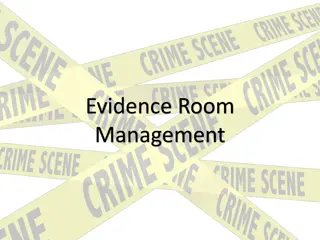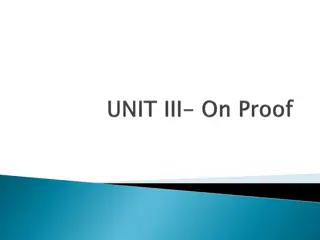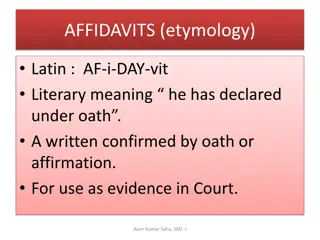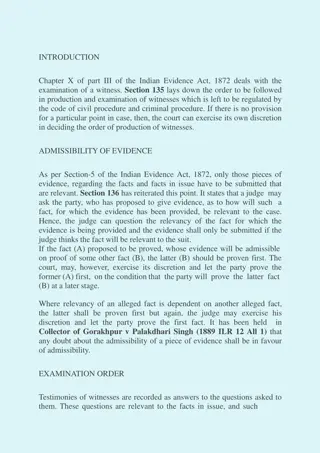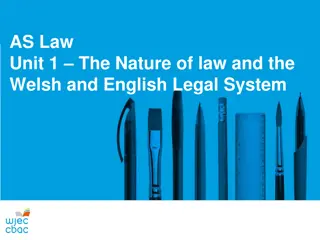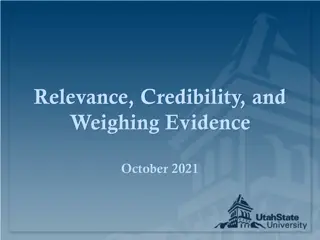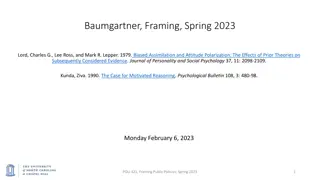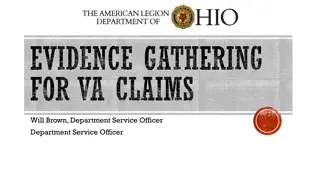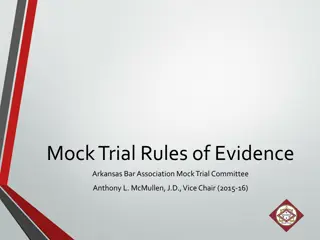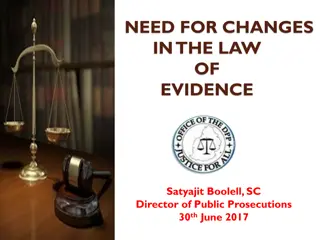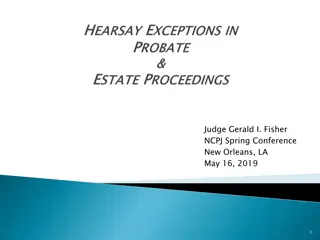Relevance of Facts in Law of Evidence
The law of evidence, as outlined in the Indian Evidence Act of 1872, emphasizes the relevance of facts connected to a main transaction. Sec. 6 dictates that facts, though not directly in issue, are critical if connected to the main transaction. The Doctrine of Res Gestae is also considered relevant, albeit not explicitly named in Indian law. Various illustrations provided demonstrate how facts are deemed relevant based on their connection to a transaction or event. Understanding the concept of relevant facts and the criteria for determining their importance is crucial in legal proceedings.
Download Presentation

Please find below an Image/Link to download the presentation.
The content on the website is provided AS IS for your information and personal use only. It may not be sold, licensed, or shared on other websites without obtaining consent from the author.If you encounter any issues during the download, it is possible that the publisher has removed the file from their server.
You are allowed to download the files provided on this website for personal or commercial use, subject to the condition that they are used lawfully. All files are the property of their respective owners.
The content on the website is provided AS IS for your information and personal use only. It may not be sold, licensed, or shared on other websites without obtaining consent from the author.
E N D
Presentation Transcript
Law of Evidence, 1872 B.A.LL.B. 6THSem By Dr. Rajnish Kumar Srivastava Asst. Professor Dept. of Law DDU Gorakhpur University, Gorakhpur
Sec 6 Facts which, though not in issue, are so connected with a fact in issue as to form part of the same transaction, are relevant, whether they occurred at the same time and place or at different time and places.
Facts which are the part of same transaction, are relevant The term same transaction is not defined in the Evidence Act, but transaction is the group of facts, connected with each other and referred by a single legal name like Crime and Contract etc.
Part of same transaction The part of same transaction means- 1- Proximity of time 2- Unity of place 3- Community of purpose 4- Continuity of action
Illustration 1 A is accused of the murder of B by beating him. Whatever was said or done by A or B or the by-standers at the beating, or so shortly before or after is as to form part of the transaction, is a relevant fact.
Illustration 2 The question is, whether certain goods ordered from B were delivered to A. The goods were delivered intermediate persons successively. Each delivery is a relevant fact. to several
Doctrine of Res Gestae Section 6 declares certain facts relevant which are in English law come under the doctrine of res gestae . The expression res gestae is not used in Indian Law of Evidence, but considerations it is difficult to avoid a passing reference to the doctrine in this Act. due to certain
Ratten v. Queen (1971)3 W.L.R. 930 A man was prosecuted for the murder of his wife. His defence was that the shot went off accidently. There was evidence to the effect that the telephoned to say, get me the police please . deceased
Res Gestae and Hearsay Hearsay evidence means the statement of a person who has not seen the happening of the transaction, but heard of it from others.
R. v. Foster (1834)6 C&C 325 The witness had only seen a speeding vehicle, but not the accident. The injured person explained him the nature of the accident. He was allowed to give evidence of what the deceased said, although it was only a derived knowledge, it being a part of res gestae. Thus, the doctrine of res gestae constitutes an exception to the principle of hearsay.
